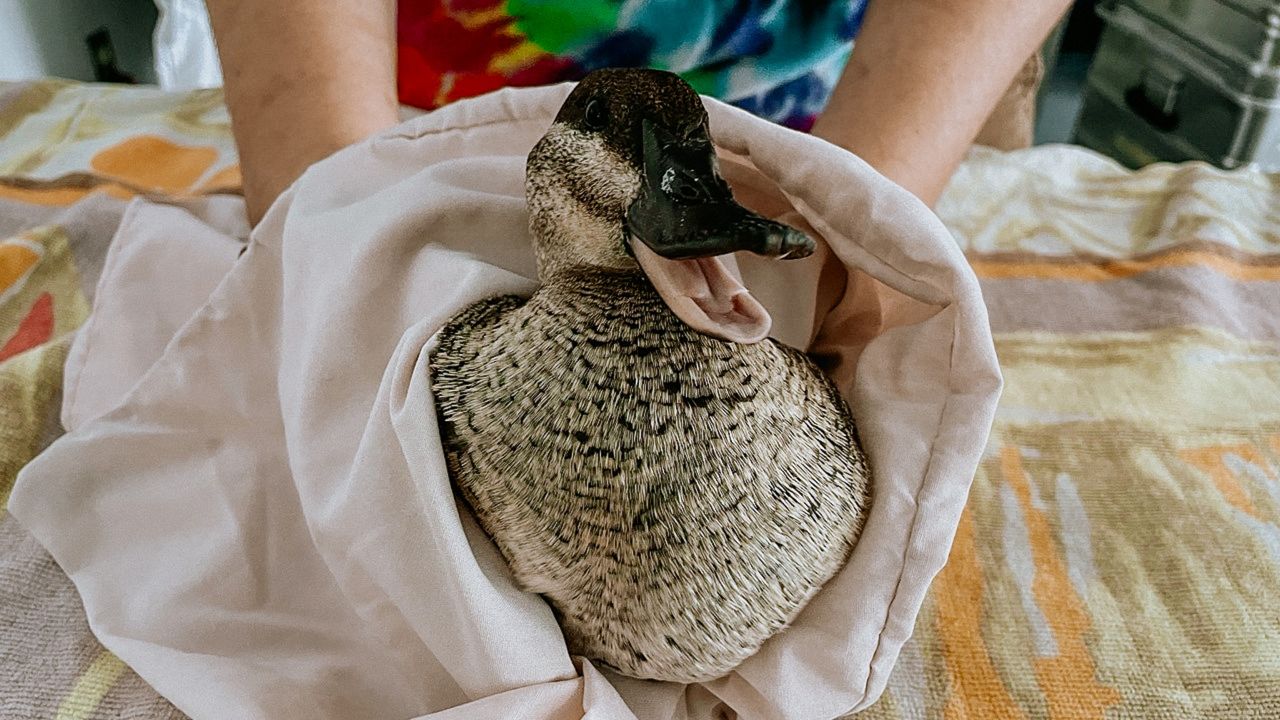Wednesday was an important day for the folks of UC Davis’s Oiled Wildlife Care Network, as it was the first planned release of birds affected by the Huntington Beach oil spill.
Only two were released — a ruddy duck and an eared grebe — but it was a good start. So far, the OWCN has recovered 73 birds while working at the spill, though only 28 of them were found alive; of those, six were unable to recover from the effects of being oiled and have since died.
Historically, OWCN — a collective of agencies that rescues and rehabilitates oiled animals across California — finds that between 50-75% of collected birds become well enough to be released back into the wild. Some come in with pre-existing chronic injuries unrelated to the oil spill; others don’t improve from oil-related maladies.
“Most of the birds that were collected were very heavily coated — not able to swim, not able to fly, coming ashore to stay warm,” said Michael Ziccardi, director of the Oiled Wildlife Care Network.
A bird coated in oil faces a host of problems — oil will disrupt a bird’s natural insulation among the layer of feathers closest to its body. Essentially, it creates a hole in their “dry suit,” Ziccardi said, chilling them. Their first response then is to preen the oil off, which they then ingest.
They also come ashore to warm up, which presents other problems — if they’re too cold to go in the water, they can’t eat their typical foods, which also provide their fluids.
“So we see them basically wasting away in a matter of days if they’re not collected and starting the rehabilitation process,” Ziccardi said.
The process isn’t always easy — teams have to be very careful to ensure that they’re not further traumatizing birds already stressed from being coated in oil. Capture by human threats, as well, is a tremendous stressor in itself, as can be the process of de-oiling animals, so rest and comfort time is folded into the process.
“After a week, a week and a half or so, when they’re as normal as we can make them, medical exams are normal, and they’re acting normally, that’s when we can release them,” Ziccardi said.
Operations are slowing down a bit now — only three live birds have been recovered over the past five days — but OWCN is continuing on its efforts to catch oiled animals, clean them, treat them and return them to the wild. Each event allows the network to expand research and use new procedures and tools to care for animals.
What hasn’t changed is that OWCN insists that the public not try to approach or capture oiled animals themselves. Animals can injure people, oil can injure people, and people can injure animals, Ziccardi said. Instead, the public is asked to call 877-823-6926 to report oiled or injured animals.



